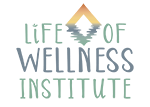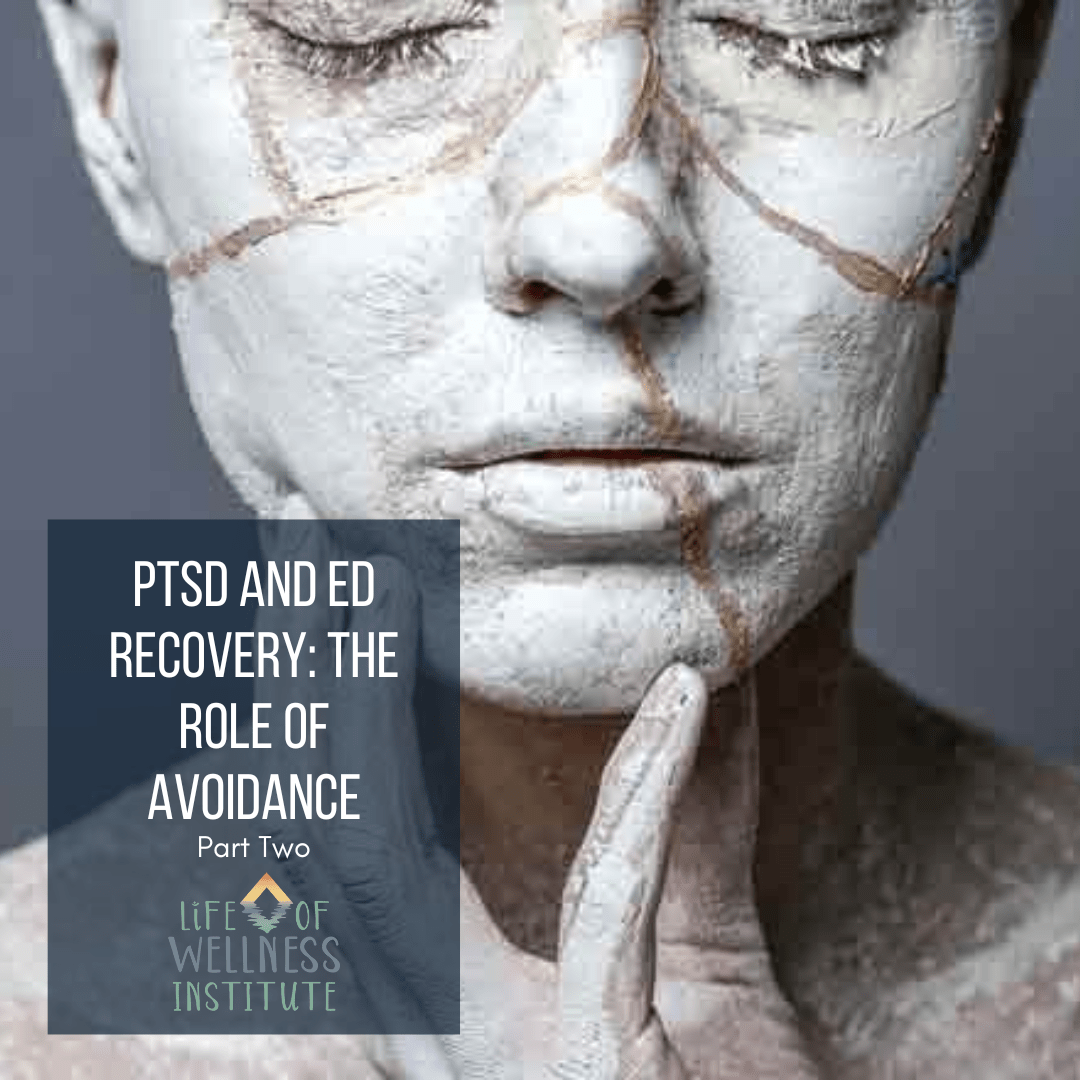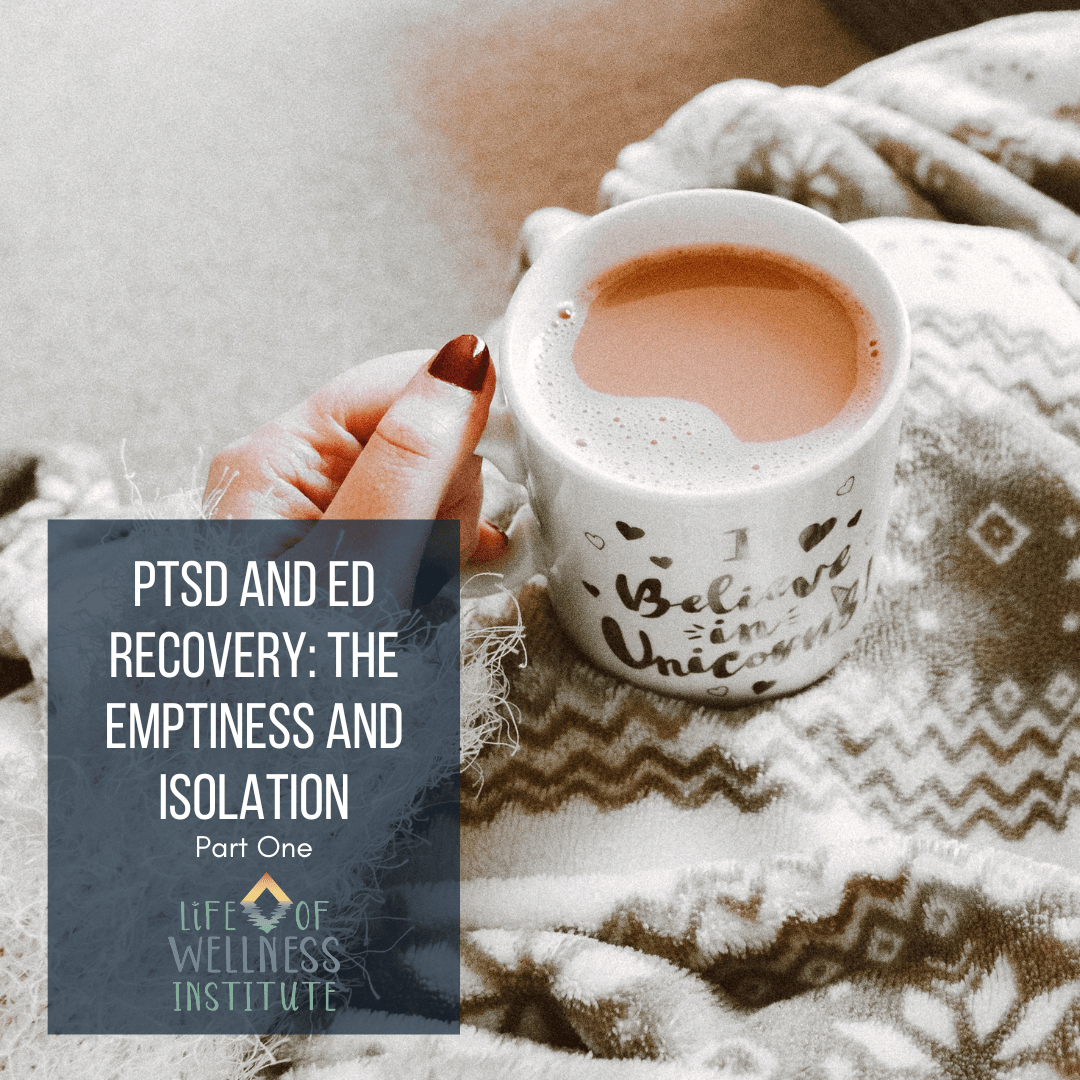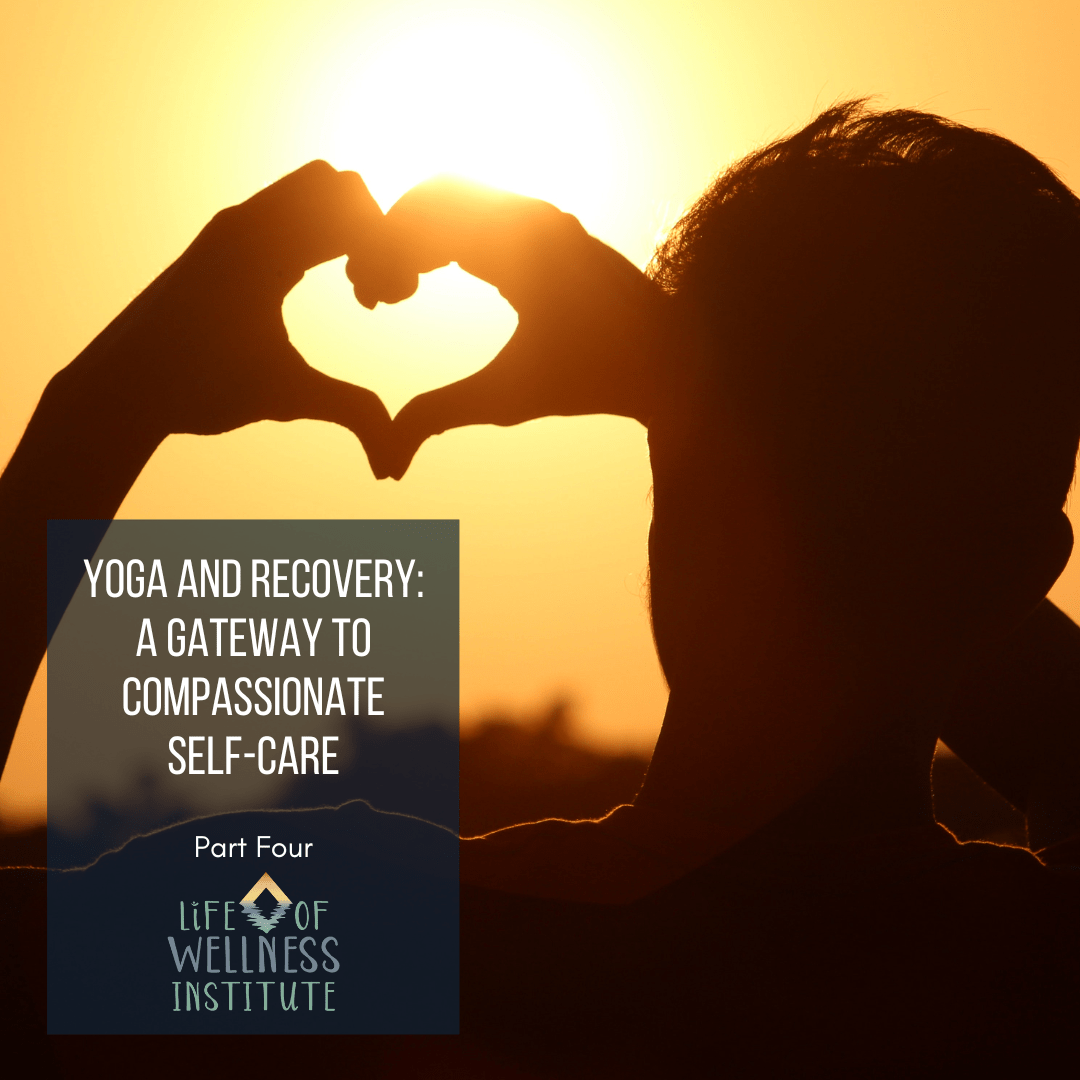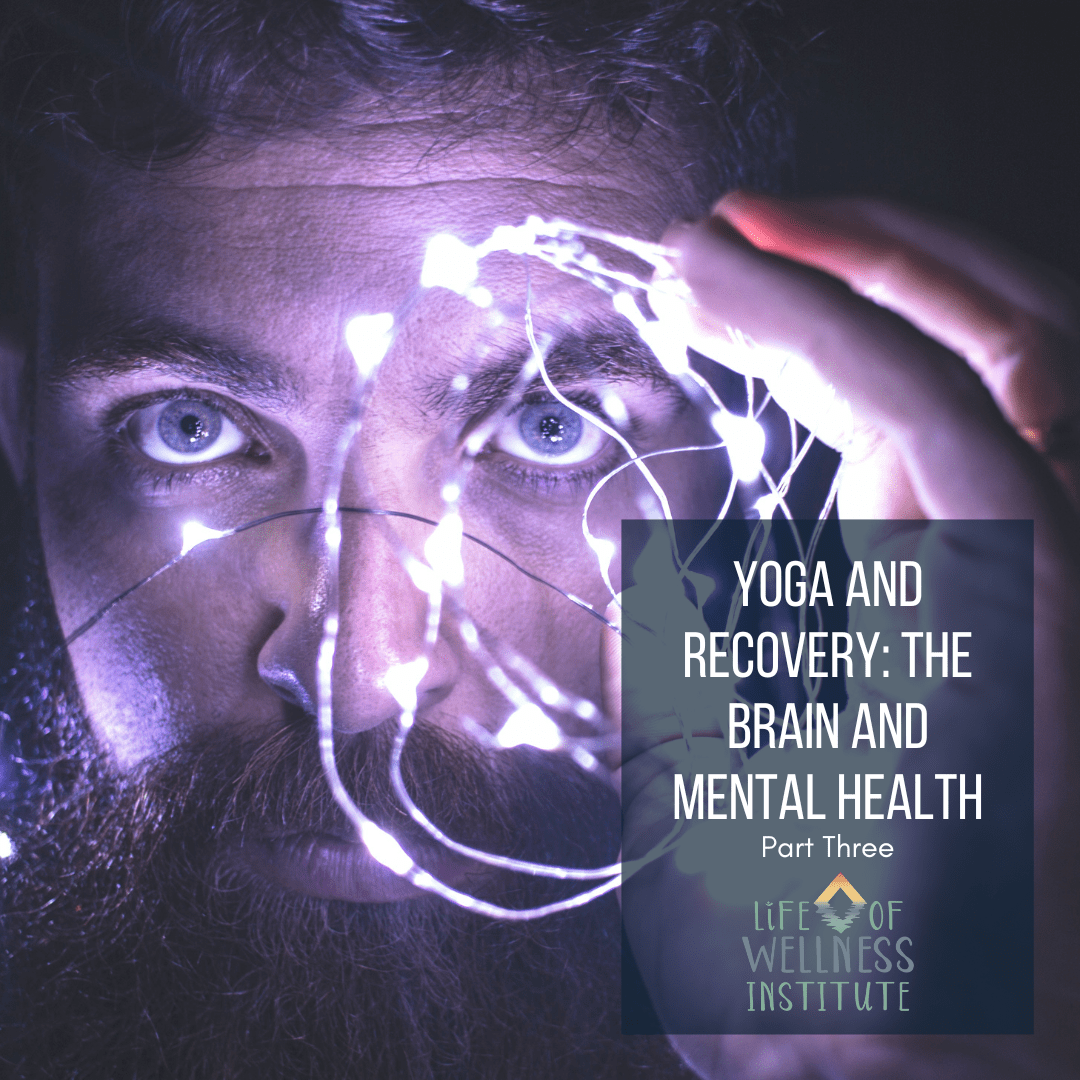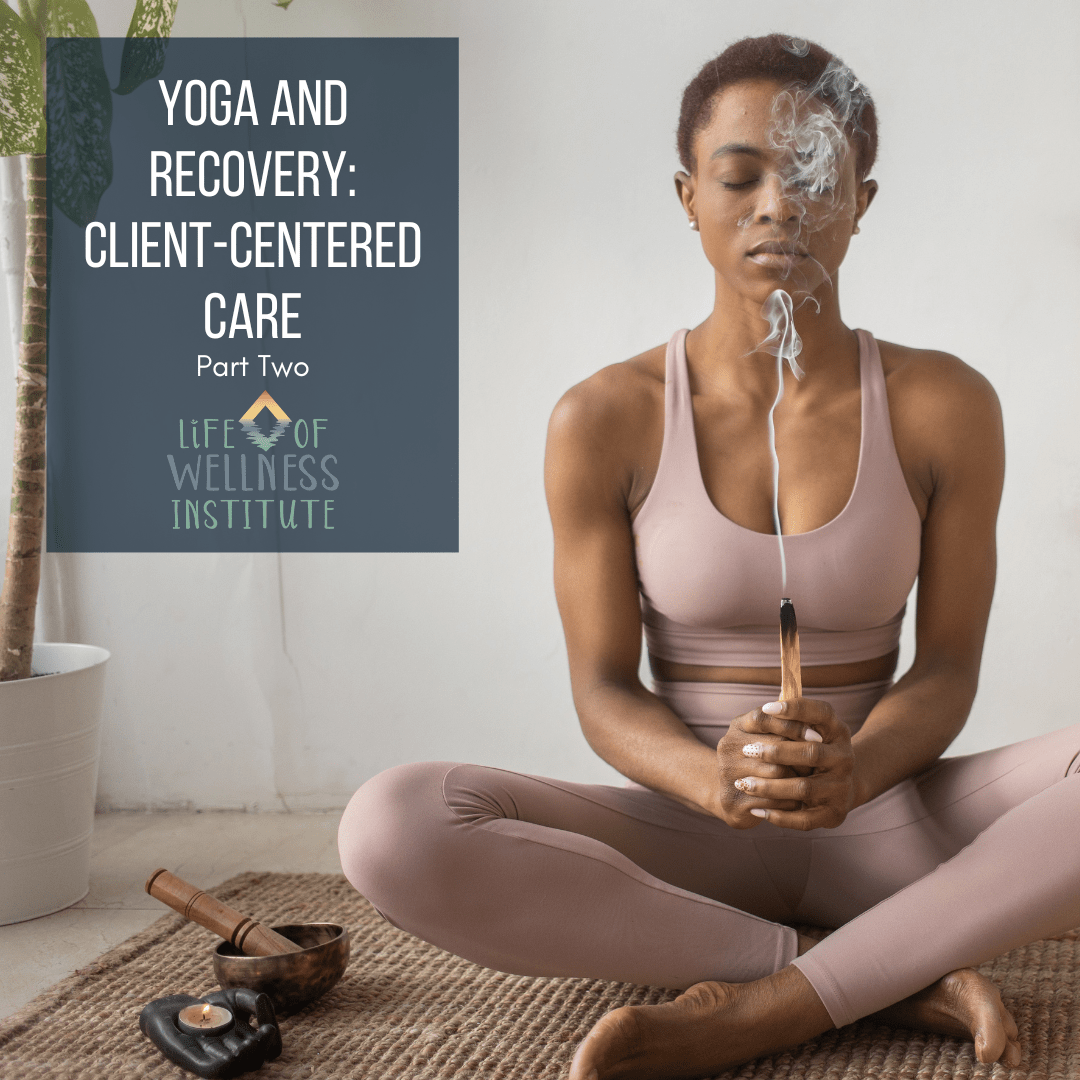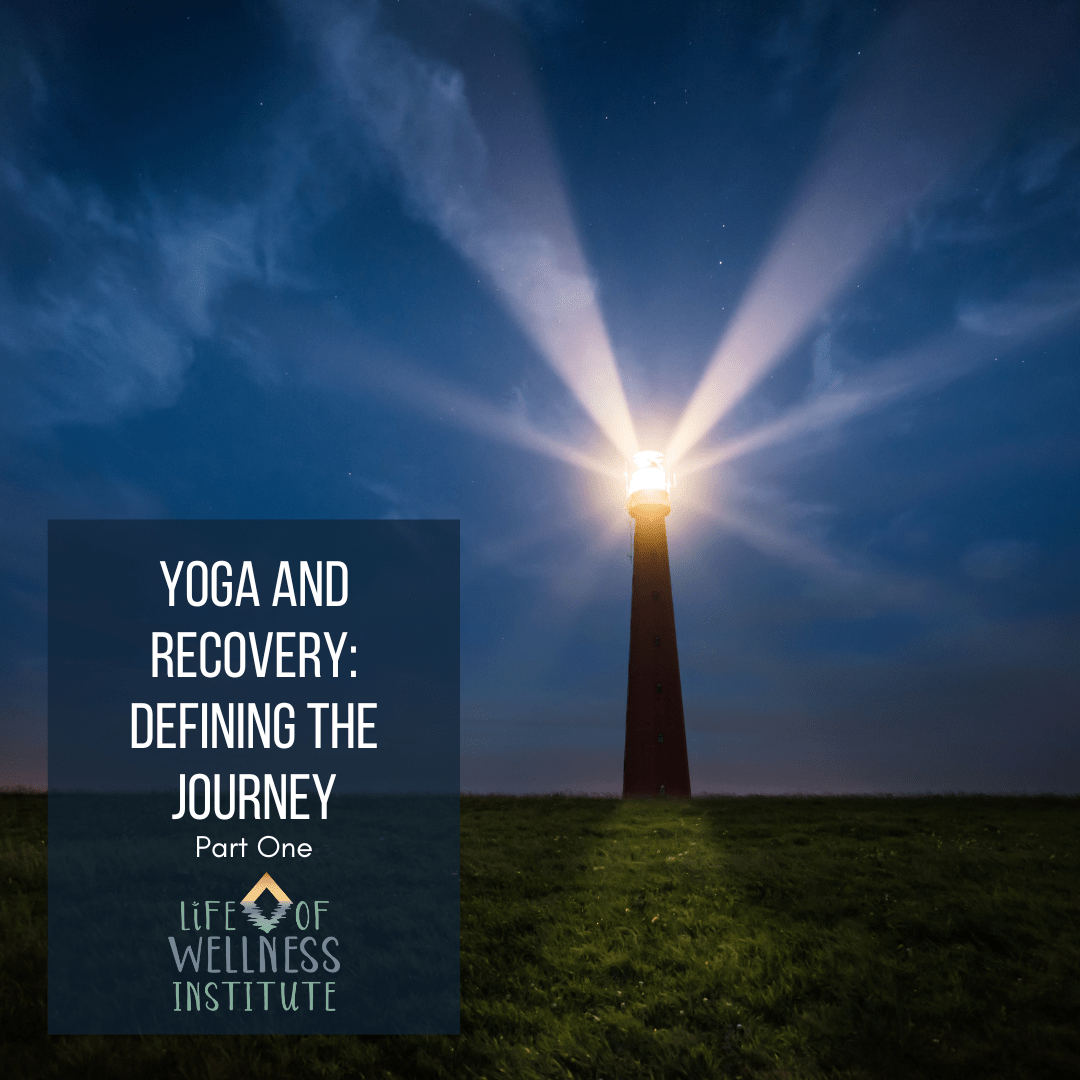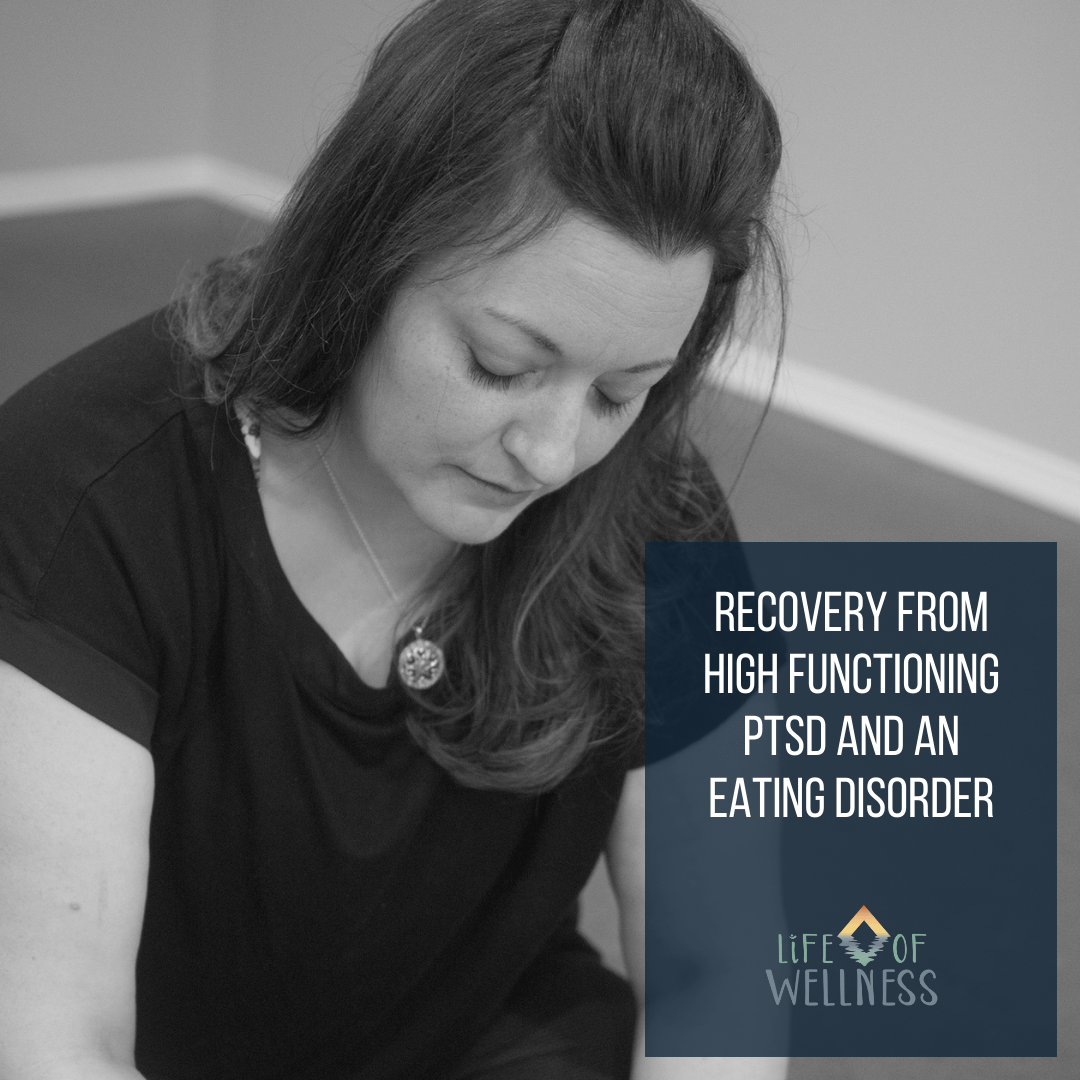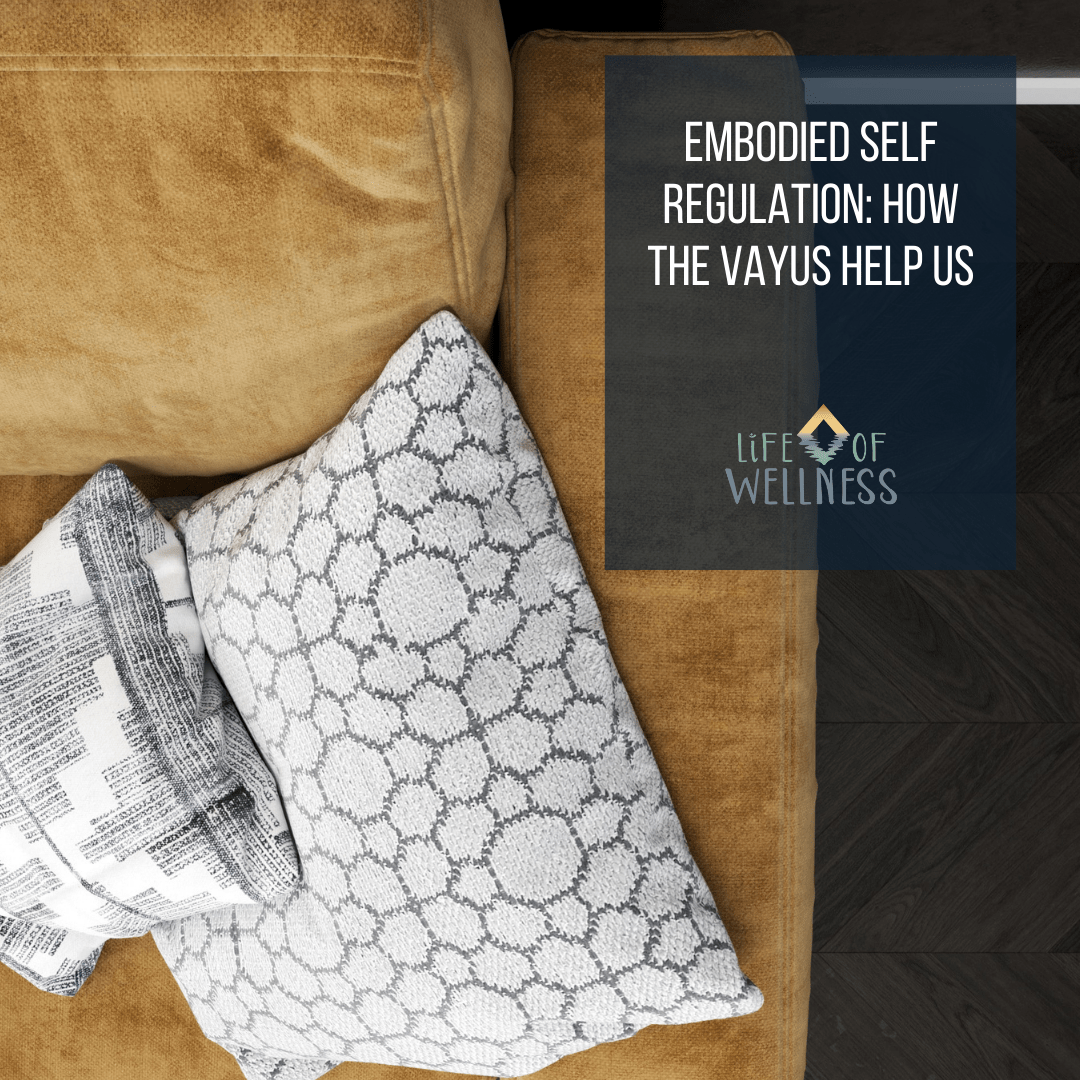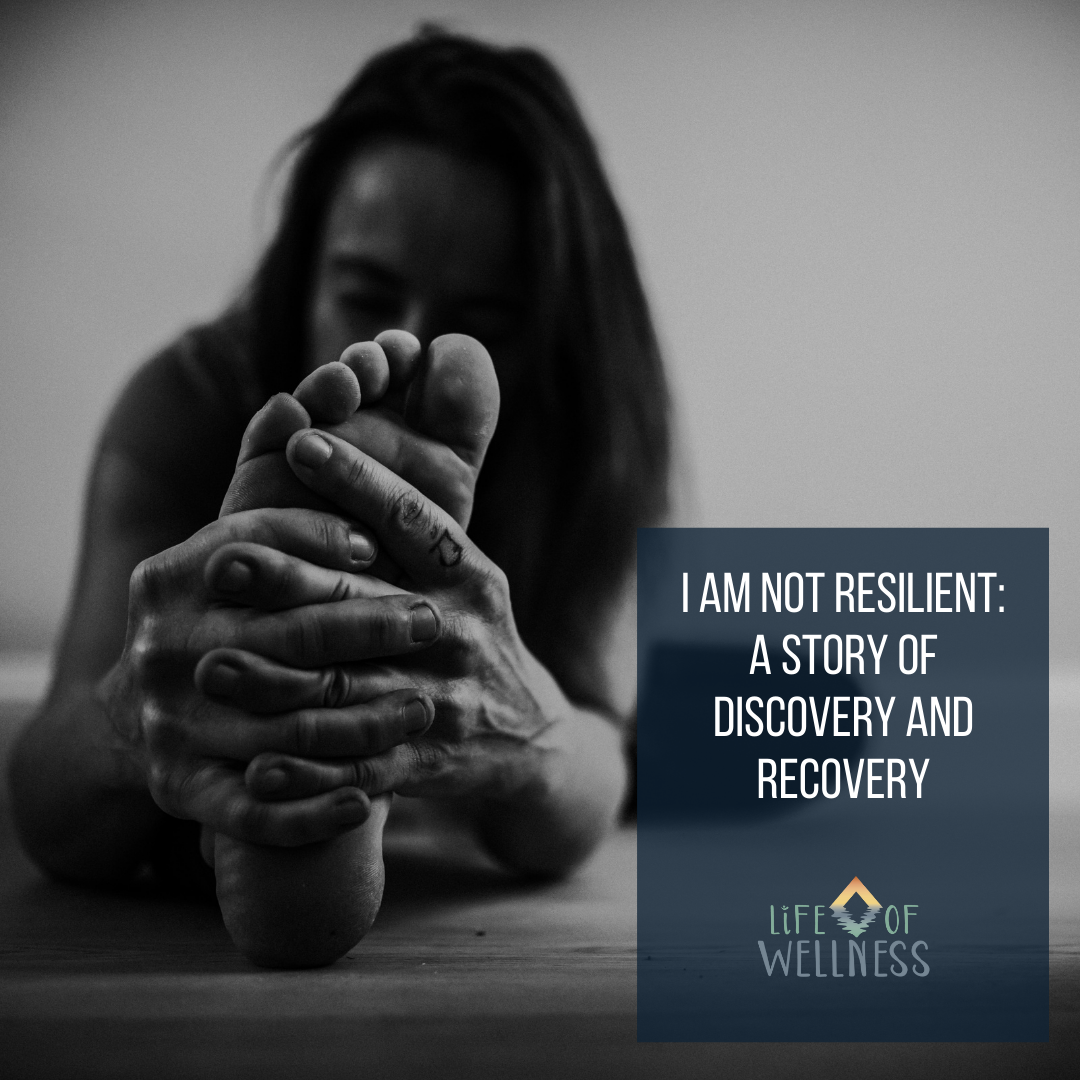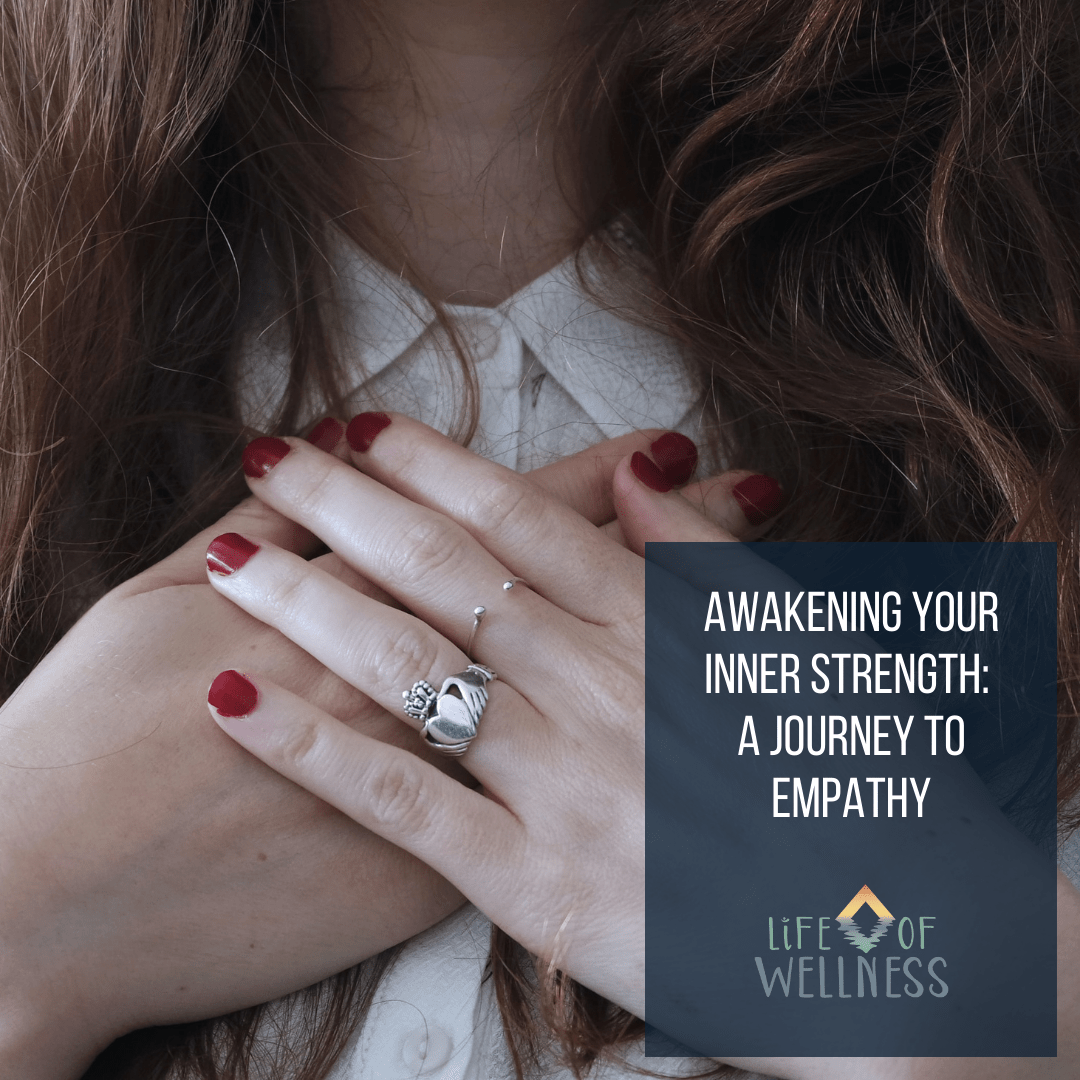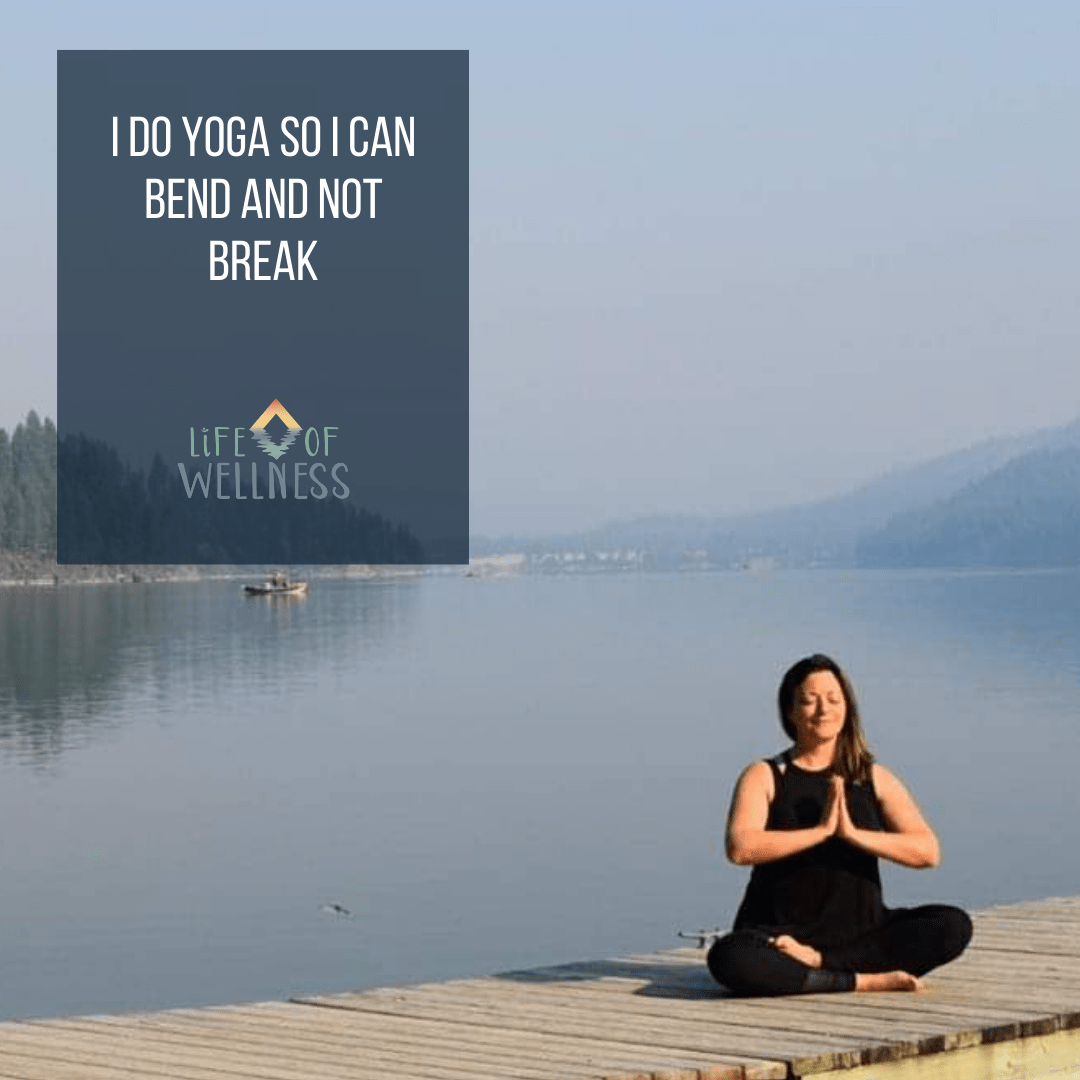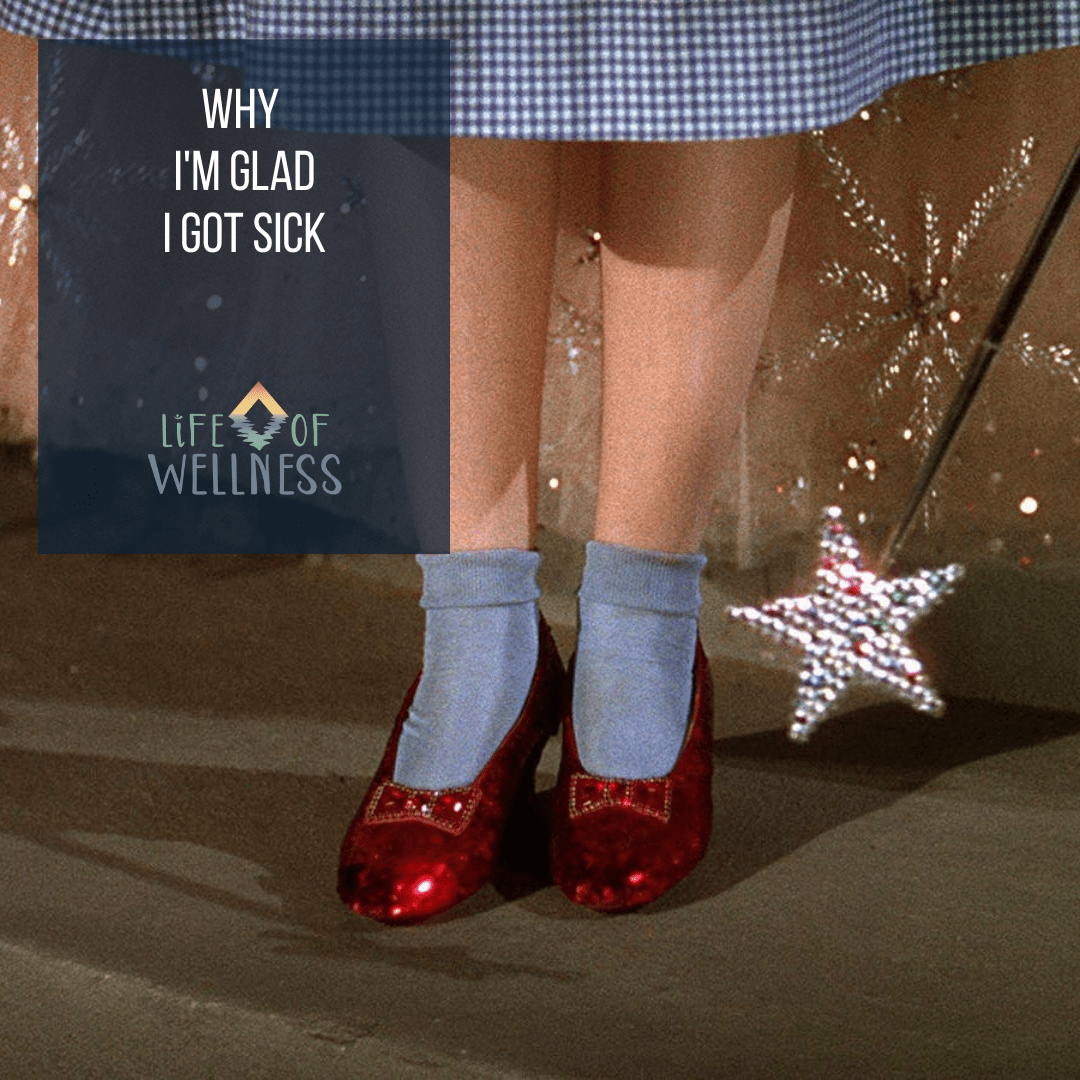It’s no secret that mental health disorders like PTSD and eating disorders can take a toll on your life. But you may not know how we cope with these disorders, and avoidance can worsen them. Avoidance is a common coping mechanism for people with PTSD and eating disorders. It can take many forms, such as avoiding certain places, people, or activities that activate symptoms. Avoidance can also take the form of engaging in activities or behavior to not having the time or space to feel our body’s communication, feelings, thoughts, and emotions of our suffering. Another common coping mechanism is to turn to alcohol or drugs to numb the feelings of anxiety and fear. While these behaviors may provide some relief in the short term, they can worsen symptoms in the long run. In this article, I will discuss the role of avoidance and behaviors in disordered mental health and recovery. I will also be providing some tips on learning how to cope in a healthier way. Continue Reading
PTSD and Eating Disorder Recovery: The Emptiness and Isolation
If you’re like me, you’re probably no stranger to the feeling of isolation and emptiness. That feeling of hollowness lingers no matter what you do to try to fill it. For me, this feels like an emptiness within me, the size of the Grand Canyon. I am frozen, unable to cry out for help—I am empty and alone. Have you ever felt like you were trying to fill a void? Unlike filling a glass or a pool with water—it is like filling an ocean that feeds lakes, rivers, and streams. This is my experience of what an eating disorder binge Continue Reading
Yoga and Recovery: A Gateway to Compassionate Self-Care
Yoga encourages us to engage with loving kindness, listening interoceptively, recognizing and honoring our boundaries, and knowing it is safe to gently and progressively challenge our edges. We learn to see ourselves as deserving of compassion when facing challenges and difficulties—as human beings facing tender human experiences. We learn we can experience life without feeling powerless, needing to distract, engage in maladaptive coping to not feel our experiences. Continue Reading
Yoga and Recovery: The Brain and Mental Health
Yoga is like weightlifting for our brain, our brain cells develop new connections, and changes occur in brain structure as well as function, resulting in improved cognitive skills, such as learning and memory. Yoga strengthens parts of the brain that play a crucial role in memory, attention, awareness, thought, and language. Continue Reading
Yoga and Recovery: Client-Centered Care
We MUST feel safe to explore our somatic experience and trauma, learn coping skills, face the highs and lows, and ultimately recover. So, we need people on our team who are always focused on what is best for us. Practitioners who can adapt their approach for our benefit sit with us in our resistance and hold space for working through it without attachment to the result. We need caring professionals on our court, working with us and focused on helping us reach our recovery goals. Who responsibly helps us explore our experiences as we learn to cope and self-regulate. Who understand the emotional cycles and rollercoasters of shame, pride, resistance, acceptance, love, and loathing. And sits with us when this darkness comes with compassion and helps us find our way to safety. Continue Reading
Yoga and Recovery: Defining the Journey
The truth is recovery is messy, challenging, and filled with highs and lows. I’ve learned to live in the moment while playing the long game. In other words, living in the present moment and embodying my life while giving myself time to do the work in treatment and grace when I stumble. Time to curiously explore and discover healthy coping techniques and when they help me. Which has helped me feel more confident and less overwhelmed when symptoms and challenges occur. Continue Reading
Recovery from high functioning PTSD and an Eating Disorder
I have spent my life keeping busy. At the height of it I was working 70-80 hours a week, volunteering over 1200 hours a year, over and above being a married mom of two. Five years ago I left this lifestyle, I even thought I had completed this part of my life. And now I can see, I have spent my life keeping busy because then I never had the time to deal with the pain, the thoughts, the emotions, the trauma. I was filling the space up to not feel. Continue Reading
Embodied Self Regulation: How the Vayus help us
In yoga, we believe that health happens when we allow our experiences to move through us. The vayus or inner winds of energetic movement enable us to self-regulate this energy. n February of 2020, after years of struggle and misdiagnosis, I was diagnosed with PTSD. The year that followed focused on therapy, filled with tears and healing. I never expected the vayus would be so helpful. Part of the healing came from looking at my past and present with fresh eyes; embodying this experience allowed me to understand how my experiences were living in my body. Look into my patterns and the beliefs I have developed over my life. It wasn’t easy and a continual work in progress. But each time I do it, I find the freedom I never dreamed was possible. Continue Reading
I am not resilient: A story of discovery and recovery
I have learned that being human is balancing two opposites; times to work hard and rest, between strengths and weakness, between the inner experience and the outer experience. Being human means, I am a living, breathing, and evolving being. I will make mistakes and have great successes, and both are perfectly me. Continue Reading
Awakening your inner strength: A journey to empathy
Deep within us is a sacred space—where our true self lives, empathy, authentic strength, and love reside. When we struggle, we can be disconnected from this part of ourselves. Our thoughts, which can be distorted by mental health, can disrupt our ability to see our true self and self-worth. Think back to being a kid. Do you remember the freedom we felt as we played? How was the tree always climbable? How was the wave that knocked us over always so much fun? Then ultimately, as we face failure, this faith in ourselves fades. To make sense of it all, Continue Reading
I do yoga so I can bend and not break
When I meet new students, I ask why they love yoga and want to dive deeper into their yoga practice. I always love hearing each answer as it gives me an insight into their experience and how I can support them. Today I want to tell you about the answer that most affected me. She responded, “I do yoga, so I can bend and not break.” Her answer reminded me of how often I hear people say they don’t do yoga because they “aren’t flexible enough” or “not bendy enough.” Each time I hear this, my heart breaks a little. Continue Reading
Why I’m glad I got sick
Throughout my life, I have had hundreds of conversations with people who, like me, have gotten sick or faced something traumatic that changed their lives forever. I have listened as they intimately shared their suffering and their victories. There is a common thread in those stories; we struggled with the questions. So today, I thought I would share the question people often asked me during this time, the impact this question had, and the answers. Continue Reading
